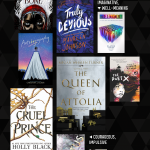Writer’s Block; the dread and fear of many writers. Being stuck is never fun and it puts a strain on your creative mind. When this happens, our first instinct to stop. But for someone who dreams of being a published writer, that’s not an option. So what can you do to get your brain and your writing back on track?
Ask ten writers how to deal with writer’s block and you’ll get ten different answers. There is no single remedy. I had to learn what worked for me through lots of trial and error, and you probably will too.
Does Writer’s Block Really Exist?
It is a permanent debate between writers. Some believe that writer’s block is very real and affects not only a writer’s work, but also their confidence. Others believe that writer’s block is an excuse not to write.
I believe that writer’s block is a legitimate problem. I’ve had days where no matter how hard I pound the keys, the words won’t come and I end up feeling like a failure. It is not at all true. Failures do not come back later and try again. They just quit. If you keep trying, despite difficulties, you succeed.

Understand why you are stuck
Sit down for a moment and breathe. In order to get to the root of the problem, you must first understand what is stopping you from writing. Is it the writing itself? Is it something else?
Stress-related writer’s block
If your writer’s block is due to stress, don’t force yourself to write. Instead, take a break for a while and do something to distract yourself. Watch a movie, read a book, take a long walk, or talk to someone you trust about your writing difficulties. All of these are great ways to relax your brain and help you work through what’s stressing you out.
Take a day or two off and allow yourself to recover. Pushing and continuing to write is not a good idea. When you’re stressed to the point that writing is difficult, pretending like nothing’s wrong actually lengthens your recovery time.

What to do when you’re out of ideas:
Start a Writer’s Notebook
In order to keep all your ideas in one place, write them down in a special place. Buy a notebook or journal to jot down all of your ideas and inspirations that you find throughout your day. If you have a busy schedule, you can even set aside time each evening to journal.

people are watching
Real life is better than fiction. Find a park, cafe, or other place where you can people watch. Take a notebook and jot down anything interesting you see. Notice how people react to each other. Listen to their way of speaking. Some of the best writings ever written on grace paper were about ordinary people in ordinary situations.
Go to the next part
It’s normal to write out of order. If you know what is supposed to happen in another part of your article, write that part. You can always come back later to work on the part you were stuck on. Many writers (including myself) use this method to do their work.
If you’re writing out of order, it might take a little extra editing, but it might help you stay on track.

To research
Google topics related to your writing. Consult books in the library on your topic. You may discover new details that will add depth to your work.

Let your imagination be free
Even a non-fiction play requires a certain amount of imagination. Sit down and let yourself dream for a little while. It’s no longer an excuse for why you weren’t paying attention in class, it’s now a creative lifeline.
Brainstorming cards are also useful when trying to let your imagination run wild.
How to make a brainstorm card:
1. Take a blank sheet of paper and draw a large circle in the center. Write down your main idea.
2. Draw lines from the center with smaller circles at the end of each. Put your supporting ideas into the smaller circles. You can go on like this for a while, developing your ideas as far as you want.

write something else
If all else fails, work on another project. Some writers actually have two projects going on at the same time, so that if they get stuck on one project, they can work on the other.
Usually I have at least two articles I’m working on. I alternate between them depending on what I’m in the mood to write. Sometimes I work on both in the same day, other times I only work on one. I could also work on writing fiction if I have problems with my articles.
Make sure you don’t take on too many projects at once. This could lead to the previously mentioned stress-related writer’s block.

Remember why you wanted to be a writer
It’s something that’s too often overlooked between writing, editing, and editing. What made you fall in love with writing in the first place?
For me, I loved telling stories, whether real or imagined. However, I didn’t want to make writing my job, because I didn’t think I could help people that way. It took me a while to realize that stories help people. A journalist can tell the stories of those who have been forgotten by the rest of the world. An author can inspire people to dream and be brave.

I know writer’s block can be frustrating and a bit scary, but don’t let it deter you from becoming an amazing writer. Remember that when you get stuck, you can stop and take a break. You can still conquer the world tomorrow.






